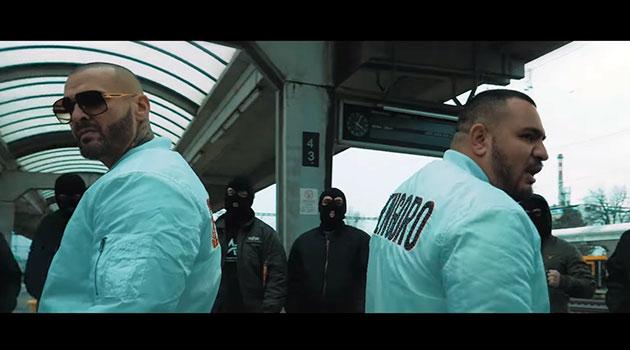Slovakia: Meet the Romani teacher who refused to grade racist essays

“I don’t feel like an alien or an exotic person who significantly differs from everybody else,” says Alexandra Berkyová. The young Romani woman used to work in education and says she has rarely encountered racist abuse personally.
Berkyová taught the Slovak language at a college preparatory school in Bratislava but gradually left the field of education. She was not able to make a living on a teacher’s salary.
The native of the Slovak capital is now 27. In this interview she discusses how she used to refuse to grade racist essays.
Q: You are a graduate in education and the Slovak language. Tell us about the path that led you from teaching to the advertising field.
A: [laughs] After matriculating to university I was employed by a firm that offers tutoring services. Since my first year at university I had been tutoring people in Slovak. They were children, adults, different age categories and types of people. After I completed school I wanted to take advantage of the fact that I had this practical experience.
Q: So you went to a Slovak language department?
A: I didn’t want to enter into a classic employment relationship, I like my freedom and I don’t like being limited. I launched my own projects and I am doing the things that I know how to do. I sing in a band, I write articles, I do photography, and naturally I am tutoring. However, I did want to try out what it’s like to be a teacher. I contacted an ad on Facebook from a college preparatory school in Bratislava looking for a teacher, and they sent me an email inviting me to come there for an interview. I began working there and it was actually quite demanding. Personally I am not able to teach Slovak without establishing a context for the lessons, so I brought a projector to my classes and screened material for them about art and changes in society.
Q: Was that not a good decision?
A: I began to have the feeling that it was not going to be the right place for me. That’s why I looked for something else. My boyfriend and I agreed that marketing might be better for me. I went through many job interviews, but everywhere I went they told me I was not right for that profession. I had a portfolio of my work, but everybody wanted somebody with several years of practical experience working in an agency. Eventually I managed to work at a health center.
Q: A Romani person who is a Slovak language teacher at college preparatory school is an unusual phenomenon in our country. Did your colleagues or students ever let you know that your skin color was different?
A: No, I have personally encountered such behavior just very rarely. It’s because I do not look Romani. However, I saw how the students were writing their essays and making racist references. They were not about me, but I let them know that I would not tolerate anything like that. I would refuse to grade their work if racism appeared in it. They would write a story, for example, and in their fictional narrative they would create the character of a Gypsy who was stealing something.
Q: Romani children from segregated localities have a problem learning formal Slovak. Is the Slovak language actually difficult for Romani people?
A: In my opinion it should not be a problem to learn formal Slovak if a child is motivated and not medically disadvantaged. Somebody might be using that idea as an excuse that serves their own purposes. Nobody ever explains to these children that they will need the Slovak language for living their lives. Today for that same reason we teach, for example, English or other foreign languages.
Q: Didn’t people connect you with your Romani origin because of your name?
A: Not at all, I really have never had a bigger problem with it.
Q: Is it because you don’t appear Romani, or is it because you live in Bratislava?
A: I’m not able to compare which it might be. I have never lived anywhere besides Bratislava. I have never experienced racist abuse or remarks travelling around Slovakia either. It may be because in the city people have different problems altogether. In Bratislava I usually meet people for whom the Romani world is not their main focus. They are open, intelligent, and well-read. They assess others according to their work, their behavior, and their opinions, not because of their skin color.
Q: What is your perception of the reports about Romani people from the settlements?
A: I am ethnic Romani, but I do not identify with the settlements and I cannot even imagine living there. It’s a societal phenomenon that has not changed at all for years. There are still news reports about Roma [from the settlements] on television and the same goes for the newspaper.
Q: If you hear people discussing issues about the Roma, what comes up for you?
A: I can imagine the situations in the settlements, but I am not able to connect to them emotionally. Rather, I do my best to comprehend how the rest of society perceives them. I get both sides, both the majority and the Romani people who are actually quite different from the majority.
Q: Do you feel like you have a Romani temperament?
A: I do feel a temperament, a naturalness, I perceive certain emotional situations in a different way than a majority-society person would. Certainly I do not have the feeling, though, that I am an alien or an exotic person who is significantly different from everybody else.
First published in Slovak on www.aktuality.sk.
